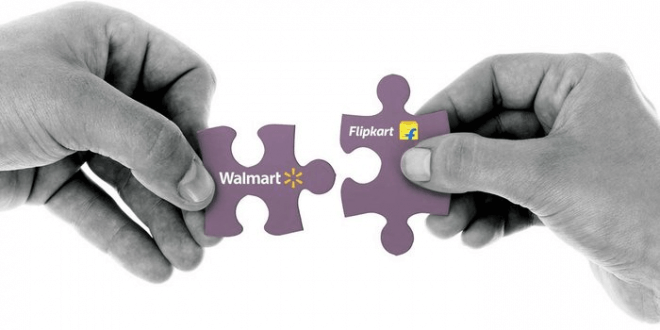
The Oracle of Omaha concedes that his speculation stone ball was overcast on no less than two tech organizations, Amazon and Google.
Talking at the yearly Berkshire Hathaway investor meeting on Saturday, Buffett said he wager wrong when it went to the innovation monsters, which speak to two of the biggest organizations on the planet. The gathering was held before a limit horde of around 20,000 at the CenturyLink Center in Omaha, Nebraska.
Buffett is viewed as one of the world’s driving worth investors, who has some expertise in esteem organizations that are regularly failing to meet expectations. Buffett has been careful for quite some time about innovation ventures.
“I settled on the wrong choices on Google and Amazon,” he said. “We’ve taken a gander at it. I committed the error in not having the capacity to reach a conclusion where I truly felt that at the present costs that the prospects were far superior than the costs demonstrated.”
Buffett said Microsoft fellow benefactor Bill Gates needed to instruct him to quit utilizing the Altavista web search tool before he wound up mindful of Google. He said he ought to have been more mindful of the organization before its open offering since one of Berkshire’s organizations, Geico, was spending a ton of cash in promoting.
The speculation master likewise said he thought little of how quickly Amazon would dis-intermediate retail.
“I had high sentiment of Jeff’s [Jeff Bezos, CEO of Amazon] capacity when I first him, and I thought little of him,” Buffett said. “I’ve watched Amazon from the begin. I think what Jeff Bezos has done is something near a supernatural occurrence … The issue is the point at which I figure something will be a marvel, I tend not to wager on it. It would have been far superior clearly in the event that I had a few bits of knowledge into specific organizations.”
On Wednesday (May 9), another part was composed in the historical backdrop of India’s online business division, which could unmistakably be known as the beginning of a third wave in the section. There were numerous naysayers when web based business entered India, for the second time in the mid-2000s. This was after its underlying tryst 10 years sooner with the Indian buyer, when, by the year 2000, it deserted such a trail of blood after such a large number of internet business endeavors shutting down, financial specialists losing cash and several thousands losing their occupations.
In any case, the second trial has been significantly more gainful, hurling firms, for example, Flipkart, Snapdeal, Myntra and others that were fruitful in snatching eyeballs and additionally bolster from top financial specialists from around the globe. These organizations now summoned top mindshare among customers, in spite of the fact that they were yet to break the curse of being beneficial.
Presently, it’s the ideal opportunity for the third era of undertakings, driven by advanced advances and imitativeness, as exemplified in the tasks of firms, for example, Walmart and Amazon, which additionally have profound pockets to put resources into the race for more clients.
The offer of home-reared e-tail organization Flipkart to Walmart, the world’s biggest organization with $500 billion in incomes, connotes a transitioning for Indian web based business undertakings.
Walmart, which has grasped internet business to survive the attack of e-tail firms, has found in Flipkart a perfect organization that can enable it to go up against Amazon in the second-most crowded nation on the planet.
As per reports, in the monetary year to March 31, 2018, Flipkart recorded a gross stock estimation of $7.5 billion (more than Rs 50,000 crore), implying that products worth that esteem were exchanged through its site including a huge number of merchants and a great many purchasers. That is, in no way, shape or form, little. While this can be a win-win for both Flipkart and Walmart, how does the Indian purchaser remain to pick up?
Will he show signs of improvement conveyance of his items, fit as a fiddle and in a convenient way? Commentators of the online business show in India have frequently said how the profound rebates offered by web based business firms, for example, Flipkart were not manageable, and that was the reason they couldn’t make benefits regardless of being in the business for 10 years. For the monetary year finishing March 2017, Flipkart enrolled misfortunes to the tune of Rs 8,770 crore regardless of incomes developing near 30 for each penny.
This was basically by virtue of a five-overlay increment in fund expenses to Rs 4,308 crore, said reports, driven by a fall in valuation. The company’s valuation tumbled from $15.2 billion out of 2015 to $11.6 billion in April 2017 as the plan of action looked flimsy and the new participant Amazon started to give hardened rivalry. Pundits say that the motivation behind why Amazon could catch the mindshare of buyers was its client driven approach and its value affectability, where it would offer day by day “best costs” that were an aftereffect of its productive store network and sourcing.
The accomplishment of Flipkart under the Walmart parentage would rely upon how it can viably actualize a world-class production network in India, given every one of the difficulties in the Indian setting. As indicated by Supply Chain Digest, Walmart stocks items made in excess of 70 nations and at any given time, works in excess of 11,000 stores in 27 nations around the globe, and deals with a normal of $32 billion in stock. As ahead of schedule as the 1980s, Walmart had started working specifically with makers to cut expenses and all the more proficiently deal with the production network.
Its store network activity, Vendor Managed Inventory (VMI), made makers in charge of dealing with their items at the retail goliath’s stockrooms, bringing about almost 100 for each penny arrange satisfaction, decades back.
Another huge fight that will open up amongst Walmart and Amazon in India will be in the nourishment and basic supply section. A year ago, Amazon got government endorsement to begin a dare to offer privately created and bundled nourishment things through disconnected and online channels.
As per reports, Amazon’s completely possessed backup Amazon India Retail Pvt Ltd is presently offering sustenance things online in Pune on a pilot premise. Walmart is relied upon to utilize a decent piece of its venture to manufacture framework including sustenance parks, icy chain and accumulation focuses.
Nourishment is as of now an imperative piece of Walmart’s trade and-do business India, including around 60 for every penny 65 for every penny of offers yearly. With the Flipkart purchase, we can anticipate greater action on this front from the organization.
Are you thinking to start your own eCommerce or Search engine business? Check out Amazon Clone and Google Clone at affordable price and see how it can help you get started.



Nice article,
I also want to grow traffic, i hope these steps helpfull,
Thanks for sharing.